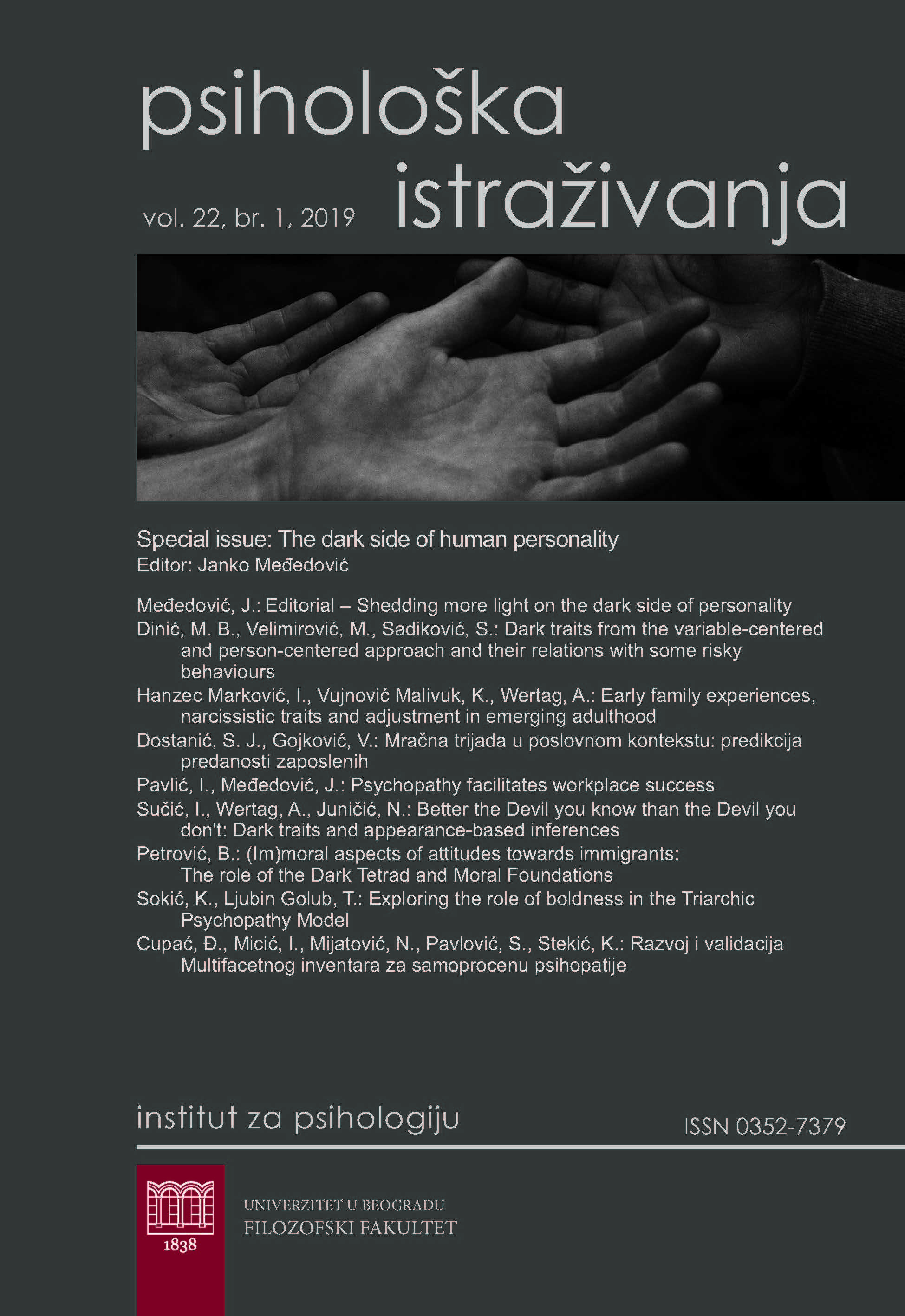Exploring the adaptive role of boldness in The Triarchic Psychopathy Model
Sažetak
The Triarchic Psychopathy Model proposed that boldness reflects a syndrome of social dominance, emotional resilience, venturesomeness, and high social efficacy. Based on theoretical assumptions, boldness is an adaptive component of psychopathy and can, therefore, be useful for identifying "successful" expressions of psychopathy. The aim of this study was to explore the relationships between boldness and different prosocial and antisocial criteria (e.g. empathy, impulsiveness, and aggression) and investigate whether boldness adds incrementally to established components of psychopathy (i.e. meanness and disinhibition) in predicting these outcomes. Data was collected on 600 students (308 male and 292 female) from various colleges and faculties located in Zagreb, using the Triarchic Psychopathy Measure, Interpersonal Reactivity Index, The Barratt Impulsiveness Scale–11, and Reactive-Proactive Aggression Questionnaire. Results of this study indicate that boldness has some adaptive potential and represent a protective factor for experiencing emotional distress and is also associated with low non-planning impulsiveness. However, it is also associated with maladaptive tendencies (higher narrow impulsiveness and higher proactive aggression). The results also suggested that boldness was related to both adaptive and maladaptive tendencies.
Autori zadržavaju autorska prava nad objavljenim člancima, a izdavaču daju neekskluzivno pravo da članak objavi, da u slučaju daljeg korišćenja članka bude naveden kao njegov prvi izdavač, kao i da distribuira članak u svim oblicima i medijima. Objavljeni članci distribuiraju se u skladu sa licencom Creative Commons Autorstvo – Deliti pod istim uslovima 4.0 International (CC BY-SA) . Dopušteno je da se delo kopira i distribuira u svim medijima i formatima, da se prerađuje, menja i nadograđuje u bilo koje svrhe, uključujući i komercijalne, pod uslovom da se na pravilan način citiraju njegovi prvobitni autori, postavi link ka originalnoj licenci, naznači da li je delo izmenjeno i da se novo delo objavi pod istom licencom kao i
originalno. Autorima je dozvoljeno da objavljenu verziju rada deponuju u institucionalni ili tematski repozitorijum ili da je objave na ličnim veb stranicama (uključujući i profile na društvenim mrežama, kao što su ResearchGate, Academia.edu, itd.), na sajtu institucije u kojoj su zaposleni, u bilo koje vreme nakon objavljivanja u časopisu, uz adekvatno referisanje.

